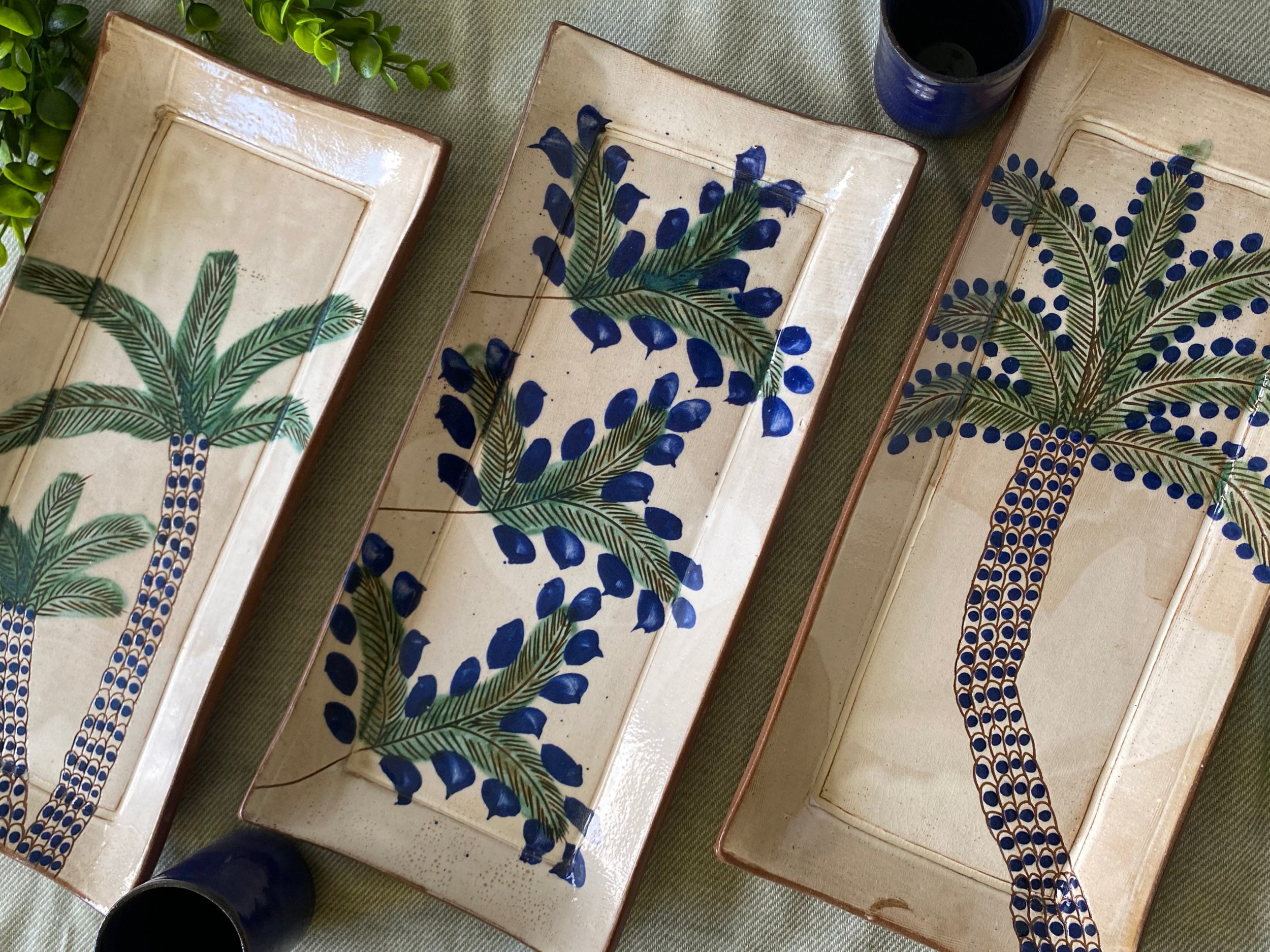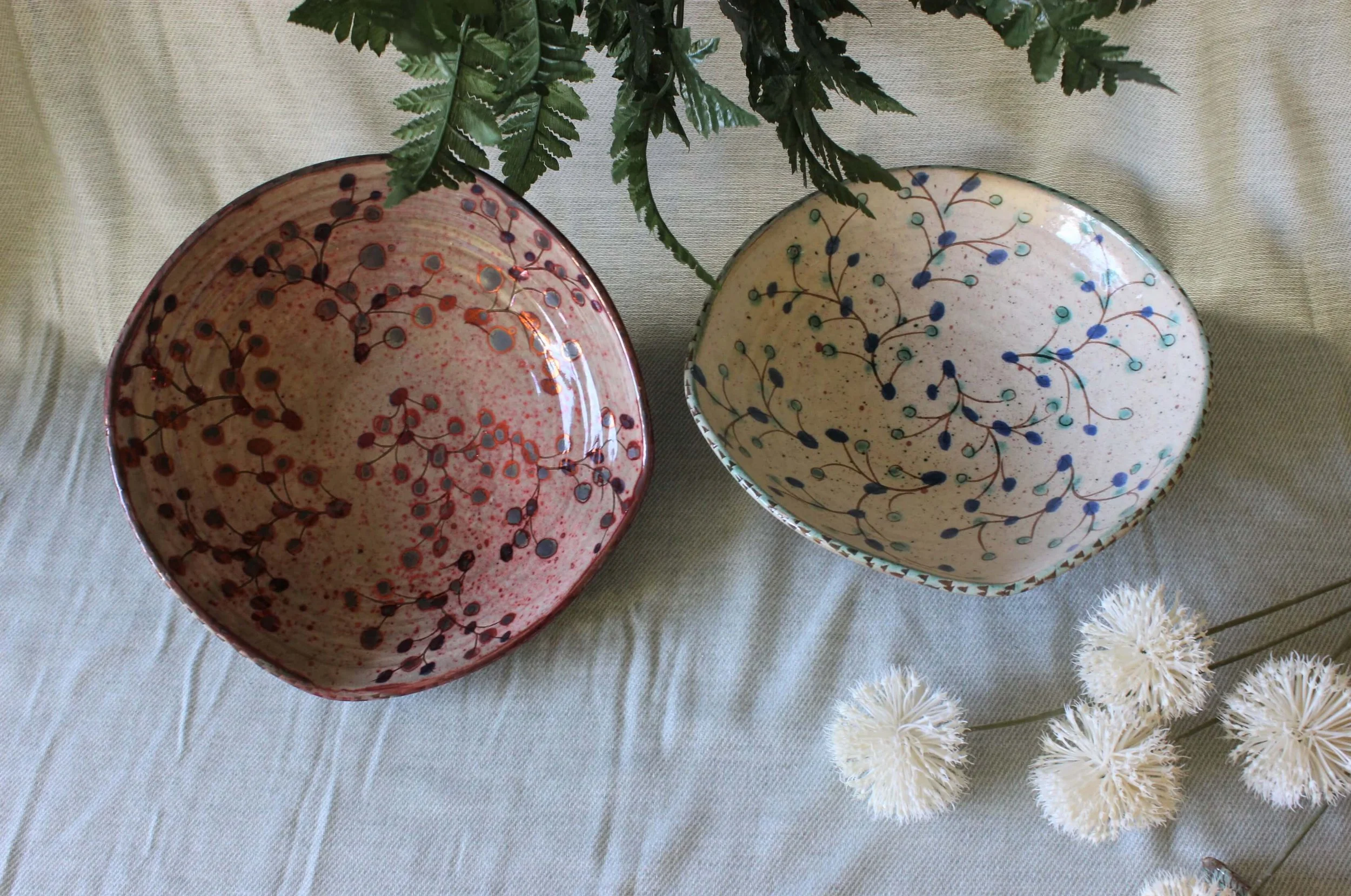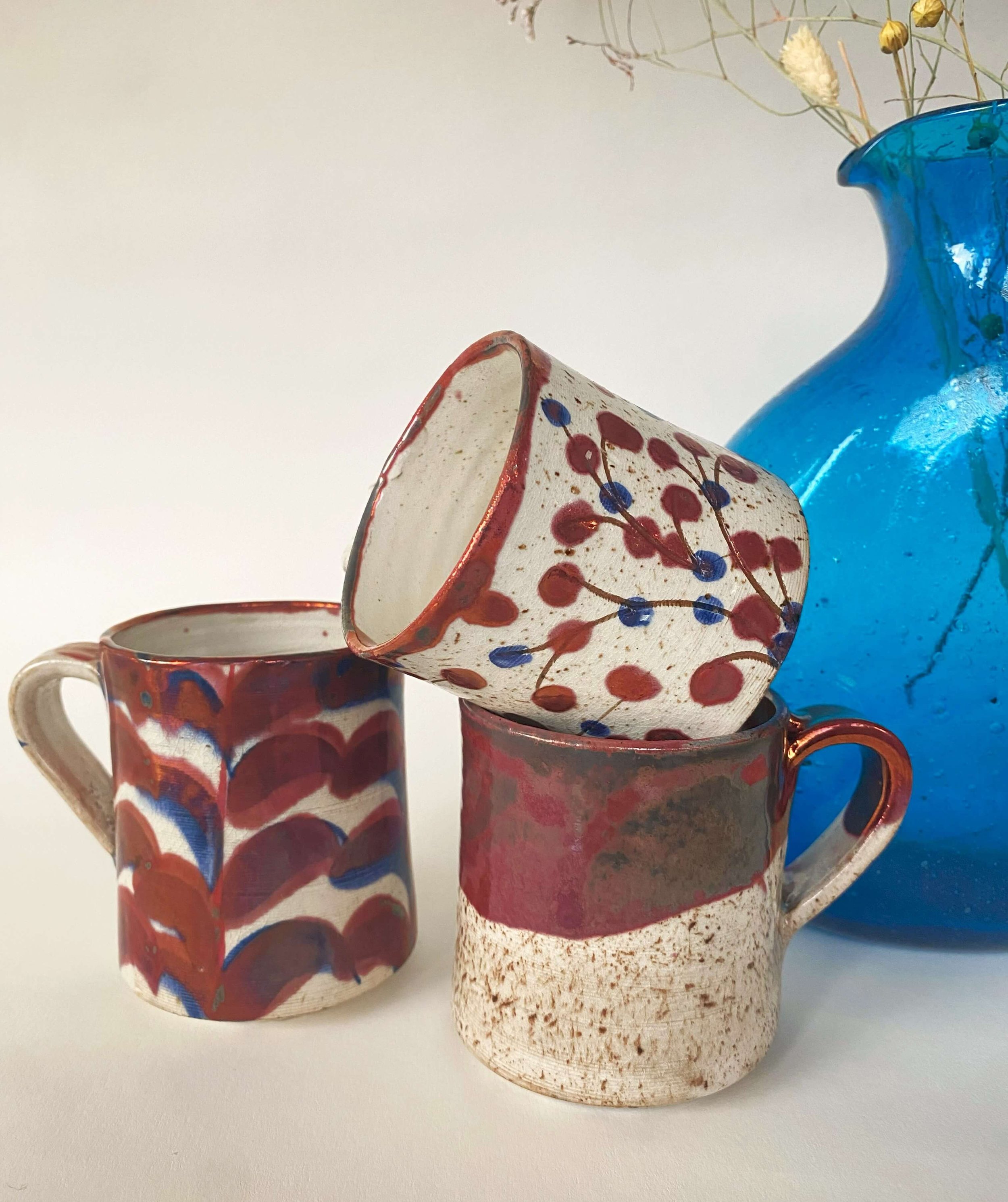
Pottery and Ceramics
Inspired by the surrounding nature of green fields, olive groves, palm trees, Lake Qarun and the desert dunes of the Fayoum Oasis, Herfa brings you a hand-picked selection of pottery from the world renowned Tunis Village
The Ceramics Collection
Coaster tiles
Bowls
Trays
Hangers
Soap Dishes
Mugs and Sets
Decorative plates
Cups
The Potters
Herfa mainly works with two potters, who are lifelong friends;Hakim and Gomáa. They were both 2 of the first students in Evelyne´s pottery school. They joined when they were around 10-11 years old. They are both accomplished artists, who have neighboring shops and workshops. When talking to them it is very clear how much passion they have for pottery and how grateful they are to Evelyne and how pottery changed their lives.
-
Hakim has such strong feelings about pottery and has such high standards, his work is so clearly inspired by his surroundings and folk tales. In our conversations, when asked to talk about himself, he would talk more about Evelyne and her influence on him.He talks about his travels with Evelyne and his colleagues, how she would take them to the fields, to museums, on tours and tell them to draw what they saw.He always talks about how grateful he is for the pottery education he got, it was the only education he got. And it paid off. He is one of the most famous potters in the village. He is currently assisted in his workshop by his son Mohammed, his son's best friend and neighbour Mahmoud, and Hakim's cousin Basheer. Mohammed draws most of Herfa's collection of decorative small plates and is a very talented young man. They were all mentored by Hakim.
-
He is truly one of the most passionate potters I have ever met. He takes such pride in his work. His shop stands out from the others in the village. He loves to experiment with different techniques of coloring and firing in the kiln to achieve his distinctive 'brass' effects. He never tires of explaining his work.He told us about how he wasn't a very 'good' student, he didn't take things seriously, he was labeled a 'bad' student by some. He was even told by a government official who visited the school that he would never be a 'respectable potter'.
Then one day he was told that a group of 'foreign girls' were coming to the pottery school, and one of his colleagues teased him about how they definitely wouldn't want to work with him. He decided to do his best. He started trying different techniques, his mates told him he was wasting time and material, but it turned out really well. When the girls came, they all wanted to work with him. His pieces always amazed the visitors and he got a lot of praise and even some rewards for his work.
The Village of Tunis
The story of the transformation of the village of Tunis is the story of how a single individual can have an impact on the lives of generations.
Tunis was a small and close-knit farming community in the Fayoum district, with olive groves, palm trees and fields of wheat, onions, marigolds, sorghum, sesame and occasionally cotton in the summer. A typical family might have a few cows, a buffalo or two, a donkey for transport to and from the fields, and a few chickens, pigeons and ducks at home. Until Evelyne Porret's internationally renowned pottery school opened in the 1990s.
Evelyne Porret is a Swiss artist who, after studying pottery and ceramics in Geneva, visited the area, fell in love with country life and decided to stay. With her husband Miicheal Pastore and the support of a local association, the school was built to teach local children the art of pottery and ceramics. It started with 16 students. Over time, the products made by the students were sold and they received a third of the income, with the rest going towards the cost of materials and maintenance.
Students move on from the school when they feel ready for the next step. Some have their own shops and workshops, some teach the next generation at the school, and others decide to do something else entirely.
Herfa's pottery collection is made by students from the first class of the pottery school, known in Arabic as Masrasat al Fukhar.











